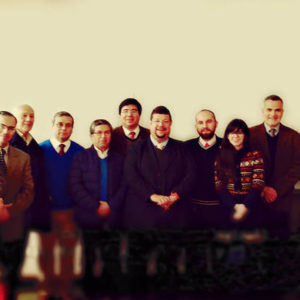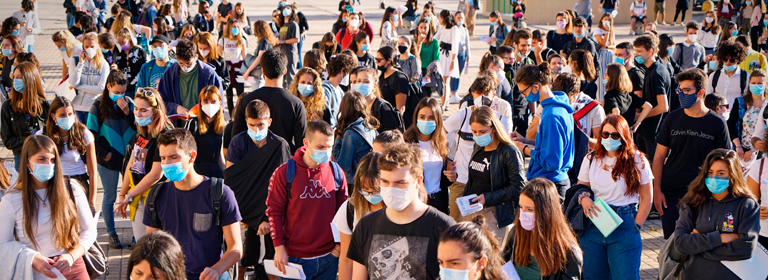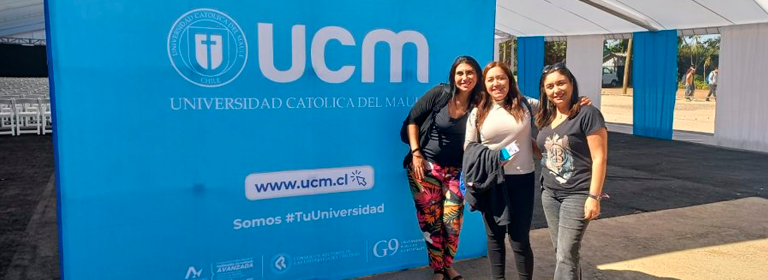Schools in Talca and Yerbas Buenas received the guide that offers guidance on suicidal behavior in school contexts.
 Preventing suicidal behavior in educational establishments is the objective of a manual prepared by the Universidad Católica del Maule (UCM), through its Psychology Department.
Preventing suicidal behavior in educational establishments is the objective of a manual prepared by the Universidad Católica del Maule (UCM), through its Psychology Department.
It is a pioneering guide that contains recommendations for dealing with suicide deaths, which are the second leading cause of death in people between the ages of 15 and 29 in Chile.
“The manuals were born from some videos we made with the researcher of the Universidad Autónoma de Temuco, Carla Figueroa, during the COVID-19 pandemic. There were ten short videos that addressed topics associated with suicide risk in the school context, such as self-harm, drug use and bullying,” explained the director of the course, Pablo Méndez.
In addition to audiovisual capsules, the Telemental Health Project included podcasts and an app aimed at alleviating disorders such as post-traumatic stress, depression, anxiety and insomnia.
“WHO data indicate that the crisis remains in the educational context, composed of quite vulnerable groups. Together with final year Psychology students at UCM and the Autonomous University, we made these manuals as a contribution to sometimes very complex situations,” said Dr. Clinical and Health Psychology.
In versions that are differentiated for each school level, the guide describes stress tolerance, emotional regulation and interpersonal effectiveness as skills for adapting to life’s difficulties. “The idea is to generate capsules for social networks, material for parent-teacher meetings and talks for students. We are very grateful, because they support us in a fundamental pillar which is prevention”, pointed out Bárbara Concha, in charge of School Coexistence at Las Rastras School, one of the establishments that received the material.
For Valentín Santander, psychologist of the same unit, the identification of the warning signs of depression is crucial to provide help in time. “As the manual says, the symptoms range from changes in behavior and mood to a decrease in academic performance and alterations in sleep or eating. These are obvious changes that an attentive parent or we as a school should notice,” she said.
Non-profit
 The guide, which also arrived at the Liceo Bicentenario Agrícola Marta Martínez Cruz of Yerbas Buenas, is part of a set of innovations whose use the school authorized to external entities through licensing contracts without commercial retribution.
The guide, which also arrived at the Liceo Bicentenario Agrícola Marta Martínez Cruz of Yerbas Buenas, is part of a set of innovations whose use the school authorized to external entities through licensing contracts without commercial retribution.
“Technology transfer does not only imply the transfer of hard technologies; it is equally important to transfer new knowledge based on research results. Non-commercial licensing contracts focused on science development boost the innovation ecosystem by activating the transfer of goods or intellectual property assets produced by the university to society,” said the institution’s Director of Innovation, Development and Technology Transfer, Fabiola Loyola.













